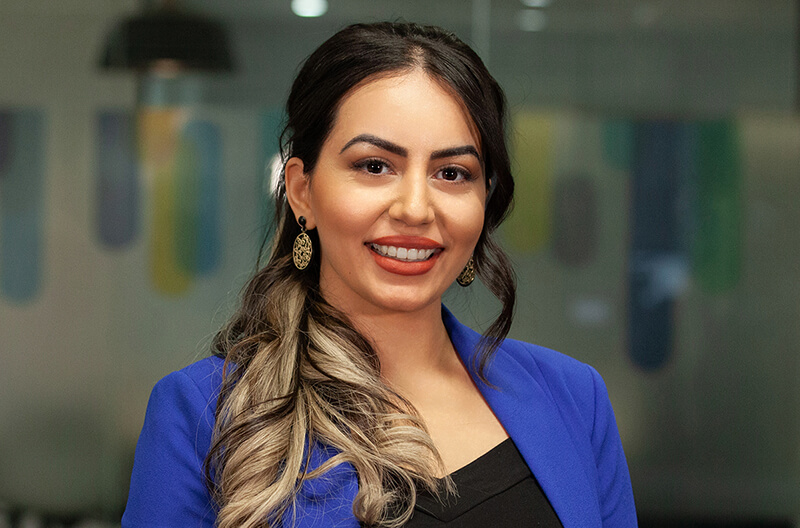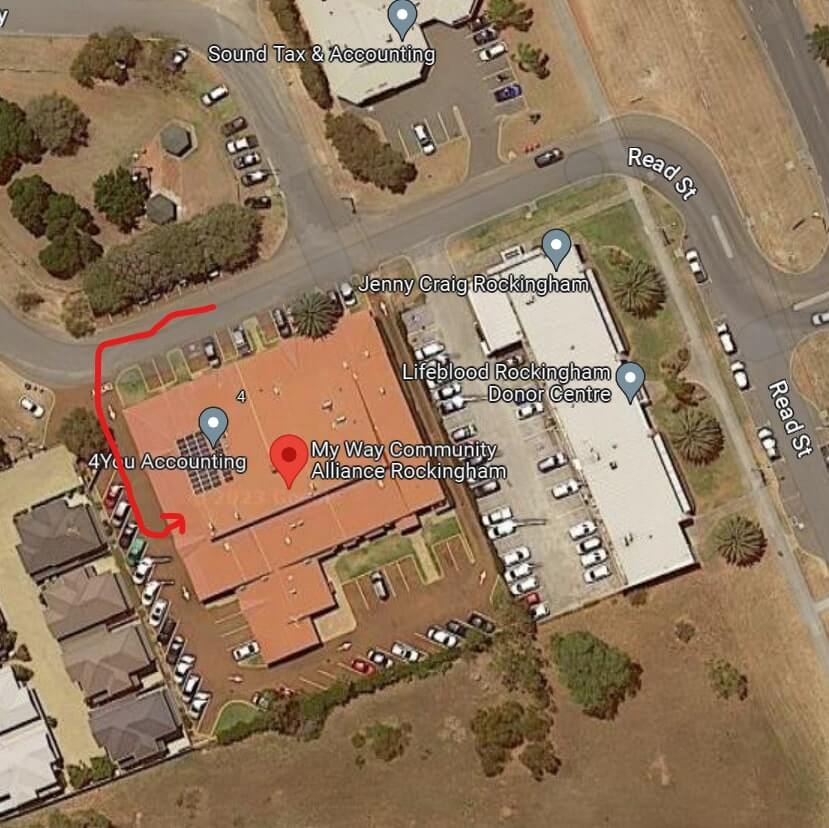
My name is Shaz Hossein, and I am the Positive Behaviour Support Practitioner at My Way. I work with participants who have behavioural issues that are having an impact on their quality of life. This behaviour could be physical or verbal aggression affecting the people around them and the participants themselves. This behaviour could be creating some degree of risk.
I studied for a Bachelor’s degree with a double major in Psychology and Counselling. I am currently pursuing a Master’s in Psychotherapy and Counselling. I’m also completing an Applied Behaviour Analysis course on behaviour and environmental change.
Problem behaviour means that people may not be able to achieve what they want because people are scared to work with them. It’s just too risky for them to be around those participants. This barrier can limit community access. It can stop people from getting a job. Sometimes, it can even become a barrier to spending time with their family.
We explore those issues, and we try to determine the underlying problem. What is causing that behaviour? We look into what has happened before the behaviour. We observe the behaviour and try to learn more about what is happening to the participant. We also look at the consequences of the behaviour. Once these factors are understood, we can develop strategies with participants and their families.
I use a person-centred approach, especially during the initial few sessions of rapport building. That could be focusing on providing a safe environment for the participants and their families so they can speak with no judgment and tell us the story. We work on a case-by-case basis and adjust our process to what is required. No two participants are the same, even if they have a similar diagnosis. Their needs might vary considerably. We tailor our work to what’s going to work for the individual.
What I most enjoy about this role is being able to understand the person and give that person the experience of feeling heard. To me, that is so powerful because you never know what it is that participants are trying to communicate with their behaviours.
Once people can speak and be themselves, you have built rapport. From this basis, understanding can grow, and we can meet the participant’s needs. This clarity can lead to a point of transformation. Progress, even in little things, can significantly impact the quality of life for participants and their families.
As we work on a case-by-case basis, we tailor our meetings to what will work best in each circumstance. Here is a description of what appointments with this service could look like. The duration of each Appointment will vary according to energy and engagement levels, availability, wellness and the participant’s NDIS plan.
In the first meeting, we focus on getting as much background and history of the clients as possible. Is there any trauma? Is there anything that could have potentially led to these behaviours? We also get to know about the behaviours that are creating problems.
We then move into a rapport-building period with the participant, which could be an hour or as long as an hour and a half. It might appear light and social, it is essential to establish a sense of connection to work together.
Once people are comfortable with us, we move on to collecting data, which is observing behaviours in different settings. This process aims to build a deeper understanding of the person and the behaviours that limit their quality of life.
The degree of communication varies with the needs of each participant. For example, a participant with complex needs or behaviours might require monthly or weekly meetings with the whole team. This gathering could be guardians, parents, or family members who are very close to them. It could be anyone regularly involved, such as trusted support workers.
At these meetings, we communicate critical information like progress goals or future interventions so everyone understands the plan. Sometimes, we will call after a session to discuss observations or ask follow-up questions. This conversation allows us to work with key people to problem-solve. There is a sense that we are all working together to achieve a good outcome.
Our Head Office is open from
9:00am to 5:00pm, Monday to Friday.
Closed on public holidays.
Please contact head office prior to visiting our branch sites.
NDIS ID: 4050044379
ABN: 24 574 460 703
Western Australia
Geraldton | Girrawheen | Gosnells | Joondalup | Mandurah | Midland | Osborne Park | Rockingham
Victoria
Melbourne
